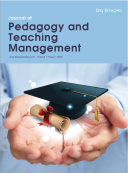Abstract
This paper explores the challenges in educational policy research from the perspective of educational political research, focusing on the nature of local autonomy in education during the Covid-19 crisis. It discusses the issues surrounding the state of “waiting for instructions” and growing distrust towards education administration in the field of education. The paper also analyzes the influence of education on politics and the manifestation of conflicts in civil society. Additionally, it highlights the importance of reclaiming the voice of the frontline and creating a multi-layered system where decisions can be made on a grassroots level to support educational autonomy. By investigating the forms of educational politics that facilitate educational autonomy, the study aims to create an environment that enables autonomous decision-making in educational practices.
References
(1) The content of the report on the day of the conference was based on the article “Guaranteeing the Right to Learn and the Role of School Boards in the Corona Disaster,” published in the Quarterly Journal of Education Law, No. 206 (September 2020), with some additions.
(2) “Rhythm collapses, no progress in learning (Tetsuo Domon),” Tokyo Shimbun, 1 May 2020.
(3) Tamura T, 2002, Klaus Offe’s Political Theory: From ‘Impossibility of Control’ to ‘Possibility of Control’. Annual Review of Political Science, 53.
(4) Fumiaki Arai, 1995, School Choice and Educational Participation in Decentralization: Trends in Educational Reform in New Zealand, Jinbun Gakuho, 259.
(5) Tamura, 2002, above-mentioned paper, p. 203.
(6) Tamura T, 2018, Scope of the Article ‘Educational Political Science’ – Through the Introduction of Distinctions between ‘Politics/Political Entities’ and ‘Education/Educational Entities’, Nagoya University Law and Policy Review, 280: 89.
(7) Tamura T, 2002, State, Politics and Civil Society: the Political Theory of Kouras Offe, Aoki Shoten, 215.
(8) Tamura, 2018, above-mentioned paper, p. 106.
(9) Japan Association for Educational Policy Studies, 2019, ‘Unjust Rule’ and ‘Fair Popular Will’, Annual Report No. 26, Gakuji Publishing.
(10) Harari YN, 2020, The World After Coronavirus, Financial Times HP.
(11) United Nations, 2020, Policy Brief: A Disability-Inclusive Response to COVID-19.
(12) Kumagai S, 2020, Beyond Corona (1) – What We Saw as Everyone Being Disabled, NHK Heartnet, viewed September 14, 2021, https://www.nhk.or.jp/heart-net/article/364/
(13) The term “autonomy of education” is used in this paper as a mechanism that enables us to critically rethink the existing social division of labor and to conduct educational practices that are responsive to the voice of each individual learner. For more information on the specific challenges of educational politics research and this autonomy of education, see Arai F, 2021, Educational Autonomy and Educational Politics: The Form of Democracy that Supports Learning, Otsuki Shoten.
